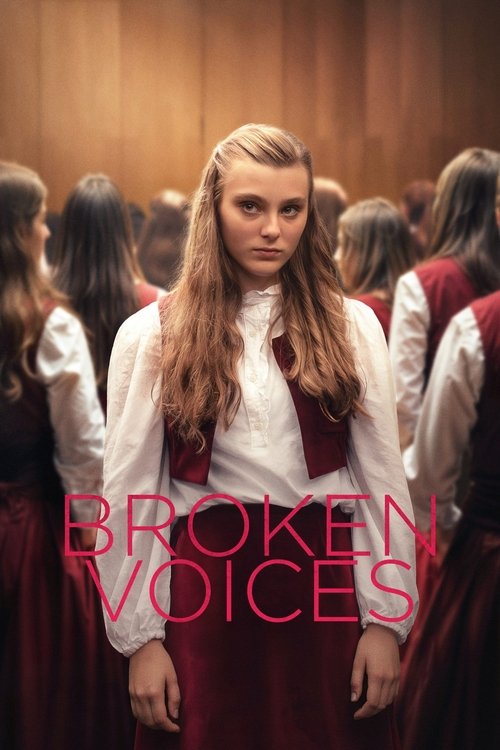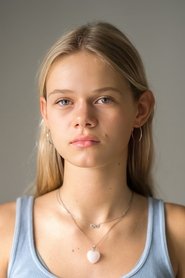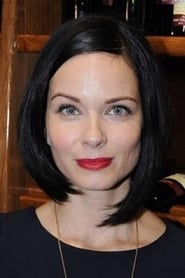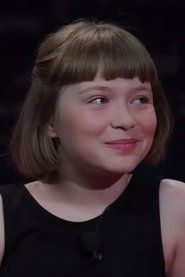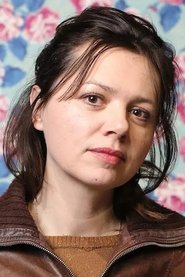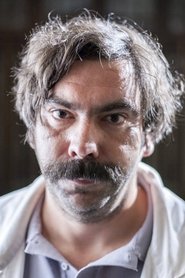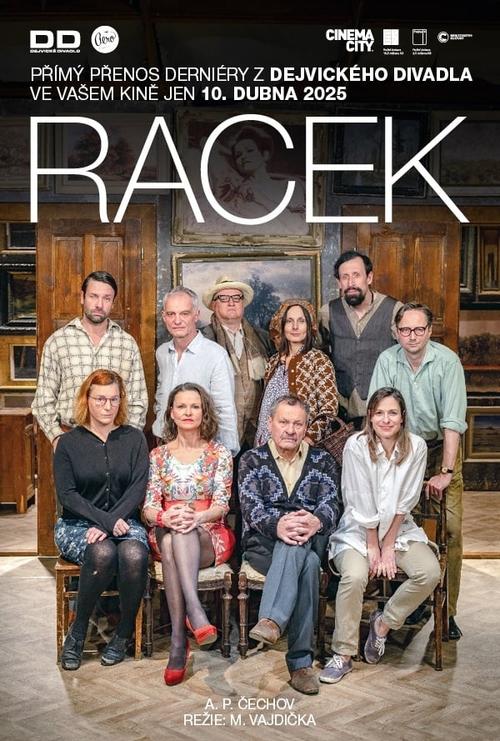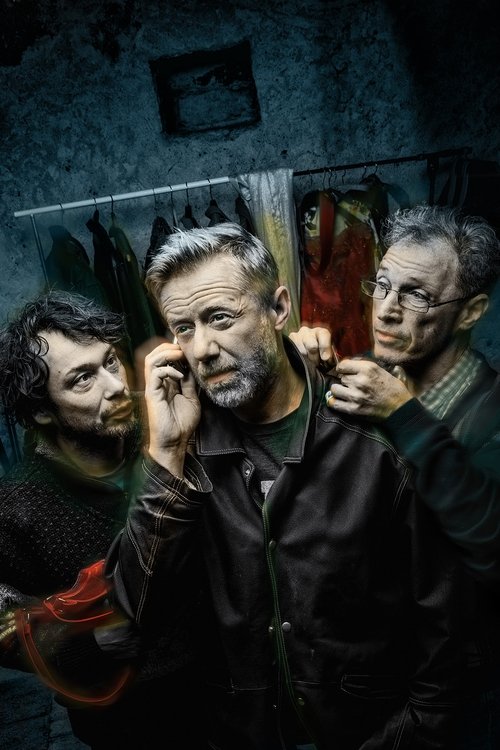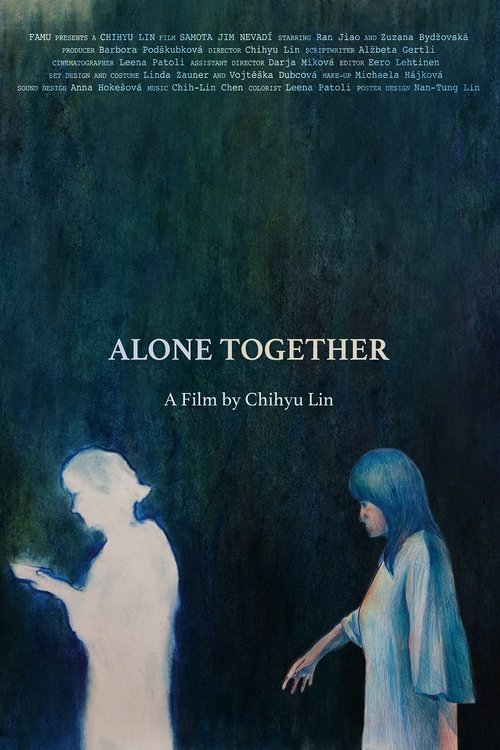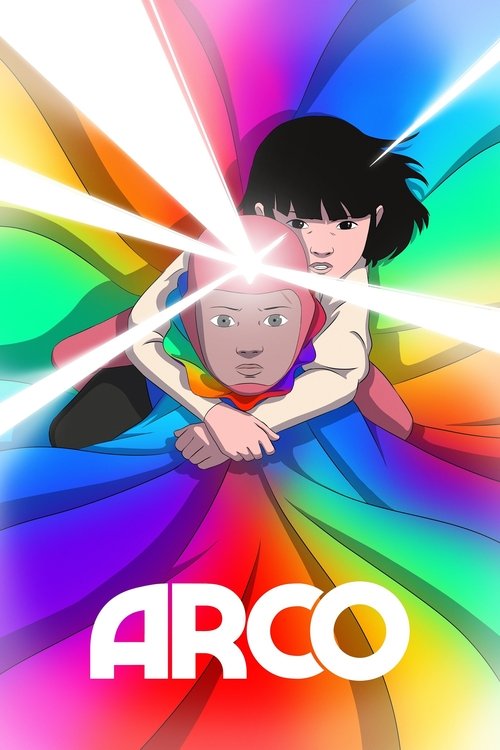
Ask Your Own Question
What is the plot?
The film opens in the early 1990s in Prague. Thirteen-year-old Karolína steps into a rehearsal room for the first time clutching the sheet music her older sister Lucie hands her. Lucie, already a member of the city's most prestigious girls' choir, guides Karolína through the high, vaulted space and introduces her to the other singers. The choirmaster, Josef Mácha, enters from the corridor and inspects the room with an exacting gaze. He wears a dark suit, keeps his hair combed back, and speaks in a low voice that quiets the girls. Mácha asks Karolína to sing a scale; she complies, and he corrects the placement of her vowels and the carriage of her shoulders. He praises Lucie with a brief nod and tells Karolína that with discipline she could be a soloist. The rehearsal proceeds under rigid rules: punctuality, silence backstage, and no talking during warm-ups. Parents watch from the gallery as Mácha demands precise diction and uniform posture. Karolína leaves the first rehearsal exhilarated and determined.
In the weeks that follow, Mácha tightens the choir's routines. He schedules extra evening practices, assigns private lessons several times a week, and approves costumes for performances himself. Karolína rises to his standards, learns to read new harmonies quickly, and wins a small solo in a local concert. The choir rehearses in municipal halls, at the conservatory, and occasionally in churches for liturgical programs. Mácha selects repertoire that demands purity of tone and exact timing. He criticizes breath control and posture publicly, sometimes stopping rehearsals to make girls repeat measures until they conform. When a singer trembles on an exposed phrase, Mácha orders the whole line to repeat the passage thirty times. Parents applaud at concerts and accept Mácha's explanations that his methods produce musical excellence.
Karolína's family life begins to shift around the choir schedule. Her mother Marta drives the girls to rehearsals, brings them sheet music, and attends every performance. Her father Karel reads reviews clipped from the paper. Lucie, who is older by two years, shares secrets about Mácha's standards and how to avoid displeasing him: always rehearse scales in the morning, carry an extra pair of black tights, and keep the memorized pieces immaculate. Lucie acts as both sister and intermediary; she defends Mácha when neighbors whisper about his severity and she urges Karolína to be grateful for the opportunities he provides.
Tensions rise when Mácha begins to exert more than professional command. He insists on controlling the girls' social interactions during tours and assigns which students may room together. On a trip to a cathedral in Vienna, Mácha organizes late-night practice sessions in the choir loft. He reprimands a girl named Tereza for laughing in the choir alley and relocates her to a lower voice part. In front of the ensemble he calls her "careless" and instructs her parents that she must either submit to stricter practice or leave the choir. Tereza's mother withdraws her, but Tereza continues to linger outside the rehearsal hall, watching through the windows.
During a tour through small Austrian towns, Mácha separates a group of girls--Karolína among them--for additional vocal coaching. He schedules the sessions in the hotel's empty function room. The girls comply because they want the solos that come with compliance. After one late session, Karolína returns to her room shaken because Mácha had berated her for posture and for not carrying her vowels with "enough seriousness." She tells Lucie; Lucie says nothing but tightens her jaw. Later, the accompanist Jana hears Mácha scolding a girl behind a closed door and writes a note to the choir board requesting a meeting. The board chairwoman, Marie Kaplan, reads Jana's note but chooses to trust Mácha's reputation and files the note into a drawer.
Rumors spread within the choir. Some parents discuss "strictness" in hushed voices after pickup; others praise Mácha's success as auditions produce scholarships and foreign invitations. A former member, now a young adult named Pavel, speaks privately with a freelance journalist, Tomáš, at a café near the conservatory. Pavel describes long-term pressure, favoritism, and arbitrary punishments when he was a chorister years earlier. Tomáš begins to ask questions and requests interviews with current parents. News of an inquiry reaches Mácha, who calls a formal meeting of the choir board and demands written endorsements from past judges and conductors. He reminds the board that the ensemble has won competitions and that "rumors" will ruin the girls' careers.
The first formal confrontation occurs when Marta, Karolína's mother, receives a letter from another parent describing a pattern of manipulative behavior from Mácha. Marta brings the letter to the board meeting and confronts Mácha in person. He stands while she reads the accusations out loud: late-night isolation during travel, threats of expulsion, and coerced private lessons. Mácha replies that some parents misunderstand his commitment and that his standards require hard measures. He denies any wrongdoing and tells Marta that public attacks will harm Karolína's chances. He warns Lucie that speaking out would be "suicidal" for her prospects as a soloist. Lucie meets her sister's eyes in the meeting room and says nothing.
As the controversy grows, the choir loses a few engagements. Mácha arranges a public charity concert and presents the girls on stage to demonstrate their resilience. Karolína sings a solo with clear, focused tone; Mácha beams and introduces the choir to local officials. After the curtain call, a group of parents confront Mácha in the green room. He answers sharply and leaves the room in a rush, slamming the door behind him. The patron who organized the concert, a businessman named Mr. Beneš, demands the choir board evaluate the allegations formally. The board appoints an internal committee to review complaints, and the city's cultural office requests documentation.
An initial investigation follows the committee's procedures. Board members interview parents, staff, and select girls. The committee collects affidavits that describe how Mácha controlled rehearsal schedules, punished minor infractions with humiliating stand-ins during concerts, and withheld solos as a form of leverage. Karolína gives a statement saying Mácha is "hard" but she also says he helped her vocal technique. Lucie's interview is evasive; she emphasizes the artistic results and suggests misunderstandings. Jana provides a stronger account: she recounts overhearing confrontations and describes instructions to alter travel arrangements to keep chosen girls isolated. The board recommends warning Mácha and instituting new oversight measures instead of dismissal.
Tomáš continues his reporting. He publishes an article that compiles statements from former members along with an interview with an anonymous parent accusing Mácha of manipulative control over young singers' schedules and private lives. The article does not include explicit sexual allegations; it focuses on power imbalances, enforced isolation, and psychological pressure. The story sparks a public debate in cultural circles. Some colleagues defend Mácha's methods as necessary for excellence; others call for his removal.
Under mounting pressure, the cultural office orders an independent review by a panel of psychologists and music educators. The panel sits through rehearsals, observes private coaching, and interviews girls with their parents present. Panelists document patterns: mandatory late rehearsals, threats of exclusion for minor infractions, and a climate of fear that discourages dissent. They recommend removing Mácha's unilateral control over travel and instituting a two-person rule for private coaching sessions. Mácha refuses these conditions, alleging that the panel undermines artistic integrity. The board votes to suspend Mácha pending further investigation. He packs his office while assistants carry boxes of sheet music into the corridor.
The suspension splits families. Some parents withdraw their daughters, citing loyalty to Mácha and anger at what they call "political meddling." Others support the measures and sign petitions for a transparent trial. Karolína finds herself at the center of the conflict. Mácha, angry and humiliated, forbids her from signing petitions and threatens to cut her from future solo opportunities. Lucie, whose prospects have been highest under Mácha's direction, confronts him in a private rehearsal room and accuses him of destroying girls' lives. Mácha slams his fist on a piano and tells Lucie that he built the choir from scratch; he says that serious music demands uncompromising leadership. He warns Lucie that if she betrays him, he will ensure she never sings solo again.
The dispute leads to criminal complaints on procedural grounds about coercion and misuse of professional authority. The city prosecutor opens a preliminary inquiry into Mácha's conduct to determine if his behavior crosses legal thresholds or remains strictly a professional matter. Investigators interview dozens of witnesses, including former choristers now adults. The prosecutor's office finds evidence that Mácha maintained private lists of favored singers, altered travel arrangements to separate girls from their chaperones, and used the choir's prestige as leverage over parents' choices for private tutors. The prosecutor summons Mácha for questioning.
In court preparatory hearings, several parents testify about the psychological stress their daughters endure. Karolína testifies that she was sometimes too afraid to complain because of Mácha's threats to block her career. Lucie testifies that she once felt trapped between ambition and loyalty. Mácha denies intentional wrongdoing and portrays himself as a musician besieged by gossip. The prosecutor charges Mácha with abuse of professional power and with coercive acts that fall short of criminal sexual conduct but nonetheless constituted forced isolation and psychological intimidation. The charges focus on the misuse of authority, falsification of travel logs, and coercion of minors into obeying orders regarding personal arrangements. Mácha pleads not guilty.
The trial lasts several weeks. Witnesses include parents, the accompanist Jana, the panel psychologists, and former choir members. The defense emphasizes Mácha's international reputation and the choir's award record; the prosecutor emphasizes sworn statements describing long-term manipulation. Evidence presented includes dated itineraries that differ from actual travel logs and contemporaneous notes from a chaperone listing last-minute room reassignments. The court examines testimony about specific incidents: a night in Vienna when a girl was moved to a different room "for vocal rest," a case where a child was told to avoid speaking to a teacher, and a trip where parental permission slips were signed with edits after the fact. Mácha testifies that his decisions were artistic and logistical, not coercive.
The court reaches a verdict on the charges of professional misconduct and coercion. The judge finds Mácha guilty of abusing his position by coercing minors into compliance through threats to their musical careers and by submitting falsified documents to the board. The ruling orders Mácha removed from the choir and bars him from working with children for a fixed period. The judge sentences him to community oversight, mandatory counseling, and a public apology read at a public hearing organized by the cultural office. Mácha protests his innocence but does not appeal.
After the verdict, the choir disbands for a period. Sponsors withdraw support, and concert bookings evaporate. The board resigns en masse. Karolína and Lucie attend the last public hearing, and Mácha sits at a table with his head bowed as the judge reads the ruling. Parents huddle outside the courthouse; some hug, some argue in raised voices. Karolína feels relieved but also uncertain; her vocal technique remains strong, but the world of contests and prestige that once felt like a ladder now looks like a brittle scaffold.
The film then follows the immediate aftermath. Karolína declines offers to join new conservatory ensembles; she chooses instead to continue singing privately with a small community group in a neighborhood church where Jana volunteers as accompanist. Lucie begins to see a counselor to cope with the loss of opportunity and with the pressure she placed on herself to succeed. Mácha leaves Prague quietly, taking down posters in his office and handing over ledgers to city officials. He moves into a modest apartment and teaches adult choirs that do not include minors. The cultural office publishes new guidelines for youth ensembles: two adults must be present during private coaching, travel arrangements must be transparent, and boards must include an independent member to monitor conduct.
The final scenes take place two years later. Karolína returns to the old municipal rehearsal hall on an afternoon when the door is unlocked for maintenance. She walks through the empty space, fingers trailing along the piano lid where Mácha once corrected her posture. She sits at a practice piano and sings a simple, unaccompanied line from the repertoire she learned as a child. Her voice fills the hall without the presence of an audience or a choir. She stops, breathes, and closes the piano lid. Lucie stands in the doorway; she has lighter hair and a quiet expression. The sisters talk in low voices about small things: a new scholarship Karolína declined, the community choir's upcoming winter program, and the way their parents now drive less often to rehearsals. They walk out of the hall together into a pale late-afternoon light. The film ends with Karolína and Lucie stepping off the stoop and walking down the street side by side, leaving the city building behind as they go toward ordinary life. There are no murders or sudden violent deaths in the story; the concrete consequences are legal and social: Mácha's professional removal, the choir's dissolution, and the reshaping of the girls' futures. The final frame freezes on the sisters moving away from the building, their voices no longer bound to the institution that once defined them.
What is the ending?
The ending of Broken Voices (2025) shows Karolína confronting the painful reality of the choirmaster Vitek Mácha's abuse, leading to a shattering rupture in her world. The film closes on her emotional isolation and the beginning of her struggle to reclaim her voice and identity after the trauma, while Mácha's manipulative control is finally exposed.
Expanded narrative of the ending scene by scene:
The final act begins with Karolína increasingly withdrawn and haunted by the choirmaster Mácha's predatory behavior. After a tense choir retreat in the snowy mountains, where Mácha's attention becomes more overt and sinister, Karolína's initial feelings of flattery give way to shame and fear. She tries to confide in her older sister Lucie, but Lucie is conflicted, caught between loyalty to family and the choir's prestige. The tension between the sisters grows, underscoring the isolation Karolína feels.
In a pivotal scene, Karolína confronts Mácha directly during a choir rehearsal. The atmosphere is charged; the other choir members watch silently, aware but unwilling to intervene. Karolína's voice, once clear and confident, falters as she accuses Mácha of his abuse. Mácha responds with cold manipulation, denying wrongdoing and threatening the choir's reputation, attempting to maintain his grip on the girls and the institution.
Following this confrontation, Karolína's mother and father are shown grappling with the revelations. The family dynamic is strained; the parents' protective instincts clash with disbelief and societal pressure to preserve the choir's image. Karolína's mother is depicted as torn between supporting her daughter and fearing the consequences of exposing the truth.
The film's closing scenes depict Karolína alone in a dimly lit room, her face a mixture of pain and determination. She begins to sing softly, reclaiming her voice despite the trauma. The choir's music, once a symbol of innocence and communal pride, now echoes as a haunting reminder of lost innocence and the cost of silence.
Meanwhile, Mácha's fate is left somewhat ambiguous but implied to be one of eventual exposure and downfall, reflecting the real-life conviction of the figure who inspired the story. Lucie's fate is also left open-ended, symbolizing the lingering impact of the abuse on the choir community.
The ending emphasizes the devastating effects of abuse on young victims and the complex web of silence and complicity that allows such abuse to persist. Karolína's struggle to find her voice again serves as a poignant metaphor for resilience and the painful journey toward healing.
Is there a post-credit scene?
The movie Broken Voices (2025) does not have any publicly documented post-credits scene. Available sources, including its IMDb page and festival descriptions, focus on the film's plot and production details but do not mention any post-credits or mid-credits scenes. Additionally, comprehensive lists of films with post-credits scenes do not include Broken Voices.
Therefore, based on current information, Broken Voices concludes without a post-credits scene or additional footage after the credits.
What are the dynamics between Karolína and her sister Lucie in the choir?
Karolína, a 13-year-old singer, aspires to join the prestigious A-team choir where her older sister Lucie is already a member. When Karolína is promoted to the A-team as a substitute, she receives special attention from the choirmaster, which causes tension and jealousy, especially from Lucie, who even locks Karolína outside naked in the cold, reflecting deep sibling rivalry and emotional conflict within the choir environment.
How does the choirmaster Vit Macha influence Karolína and the choir members?
Vit Macha, the demanding and meticulous choirmaster, notices Karolína's talent and gives her special treatment, such as assigning her solos. His strict and cold demeanor creates a tense atmosphere. While he appears to be just doing his job, subtle signs of abuse and emotional manipulation emerge, affecting the girls' behavior and relationships, culminating in a chilling depiction of child sexual abuse in the film's final act.
What are the signs of abuse experienced by the choir girls in the story?
The film portrays subtle signs of abuse through the girls' behavior and interactions, such as jealousy, exclusion, and emotional distress. The choirmaster's attention to certain girls sparks competition and fear. The narrative hints at abuse without explicit early depiction, culminating in a shocking and devastating scene of child sexual abuse, revealing the dark undercurrents beneath the choir's disciplined exterior.
How does the choir environment affect Karolína's personal growth and aspirations?
Karolína's dream to join the elite choir and be like her sister is shaped and challenged by the intense rehearsals, the choirmaster's demanding nature, and the social dynamics within the group. The choir becomes a place of both opportunity and trauma, influencing her emotional development as she navigates recognition, jealousy, and the emerging abuse, which ultimately impacts her innocence and aspirations.
What role does the setting of early 1990s Prague play in the story?
The early 1990s Prague setting situates the story in a time of political and social transition, adding a backdrop of fragility and change. The remote mountain boarding house for rehearsals isolates the choir girls from their families, intensifying the pressure and vulnerability they experience. This historical and geographical context underscores the themes of innocence lost and the collision with abusive power within the choir.
Is this family friendly?
The movie Broken Voices (2025) is not family friendly and may be upsetting for children or sensitive viewers. It deals with heavy themes including abuse, humiliation, bullying, and psychological manipulation within a girls' choir setting. Specific potentially objectionable or upsetting aspects include:
- A depiction of abuse and assault occurring in the presence of the audience, though not shown explicitly, which can be very triggering.
- Scenes of bullying such as a girl being humiliated in front of peers, having her clothes taken while showering, and being locked outside in cold weather wearing only a towel, risking her physical and mental health.
- The oppressive and strict environment created by a domineering choirmaster who uses threats and manipulation.
- The film's tone is described as devastating and unflinching in confronting abuse and power dynamics, making it emotionally intense and potentially disturbing.
- Moderate sexual content and nudity, mild alcohol use, and moderate frightening or intense scenes are noted in parental guides.
Overall, Broken Voices is a serious drama with mature and distressing content that is unsuitable for children and may be difficult for sensitive viewers to watch.
Does the dog die?
The movie Broken Voices (2025), directed by Ondřej Provazník, does not feature a dog as part of its narrative, and there is no indication that a dog dies in this film. The story centers on 13-year-old Karolína and her experiences in a prestigious girls' choir in early 1990s Czech Republic, focusing on themes of innocence, abuse, and emotional turmoil within the choir environment. The plot is based on real-life events related to the Bambini di Praga choir abuse scandal and does not involve any subplot about a dog or its death.
The search results mentioning dogs dying pertain to other unrelated 2025 movies such as Good Boy and Broke, which are different films entirely and not connected to Broken Voices. Therefore, in Broken Voices, there is no dog death.

